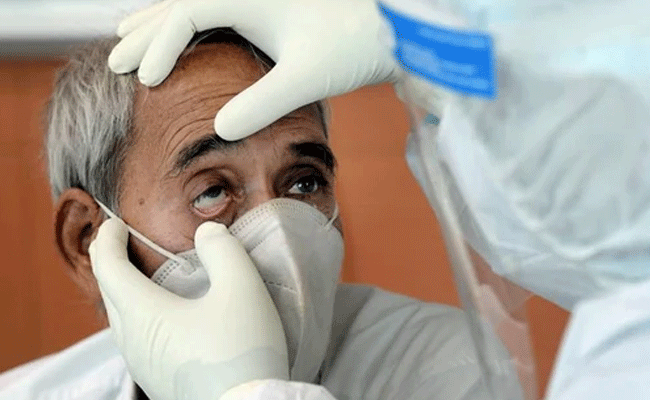New Delhi (PTI): Over 5.7 crore Indians are affected by serious fungal diseases, 10 per cent of which are from potentially deadly mold infections, according to a review of over 400 published research articles.
Fungal disease is frequent in India, but its incidence and prevalence are unclear. This review is the first to define the frequency or burden of various fungal infections in the country.
Researchers from All India Institute of Medical Sciences, New Delhi, AIIMS Kalyani, West Bengal and PGIMER, Chandigarh, along with The University of Manchester, UK, estimate that 57,250,826 (over 5.7 crore) -- or 4.4 per cent of India's population -- are likely to be affected.
"The total burden due to fungal diseases is huge but underappreciated," said Animesh Ray of AIIMS Delhi, the lead author of the article.
"While tuberculosis affects less than three million people in a year in India, the number of Indians affected by fungal disease are several times higher," Ray said.
The review, published in the journal Open Forum Infectious Diseases, found that vaginal thrush -- or yeast infection of vagina -- affected around 2.4 crore women of reproductive age, with repeated attacks.
Hair fungal infection -- known as tinea capitis -- in school-age children affected a similar number. It causes a painful infected scalp and leaves many with hair loss, according to the study.
Major contributors to death were mold infections of lungs and sinuses, affecting over 250,000 (2.5 lakh) people, the researchers said.
Another 1,738,400 (over 17 lakh) people had chronic aspergillosis -- an infection of respiratory system caused by a type of mold -- and there were 35 lakh people with serious allergic lung mold disease, they said.
The review shows that over 10 lakh people are thought to have potentially blinding fungal eye disease, and nearly two lakh had mucormycosis, so called "Black mold'.
This total burden of serious fungal infections is over 10 times the annual incidence of tuberculosis in India, indicating an enormous population of patients affected by fungal diseases, the researchers said.
Professor David Denning from The University of Manchester and Global Action For Fungal Disease noted that there have been major diagnostic improvements in recent years, with public health services in India catching up with private hospitals in terms of capability.
"However, fungal disease continues to be threat to public health and a cause of significant morbidity and mortality representing a considerable socioeconomic burden to those who are infected by them," Denning said.
"And there remain large parts of India with limited diagnostic capability, as evidenced by our inability to estimate some important diseases such as histoplasmosis and fungal asthma in children," he added.
Let the Truth be known. If you read VB and like VB, please be a VB Supporter and Help us deliver the Truth to one and all.
Mumbai: A powerful dialogue from the 2004 war film Lakshya, delivered by the late actor Om Puri, has resurfaced and gone viral after Pakistan reportedly violated a ceasefire agreement just hours after it was announced on May 10.
In the film, Om Puri played Subedar Major Pritam Singh, a seasoned army officer who warns Hrithik Roshan's character about the unpredictability of the enemy. The dialogue, penned by Javed Akhtar, struck a chord with audiences: “Mujhe unn logo ka tajurba hai, Pakistani haare to palat ke ek baar phir aata hai… agar jeet jao to fauran laparwah nahi ho jaana. Meri baat yaad rakhna.” (“I have experience with these people. If Pakistan loses, it returns to attack again… if you win, don’t become careless. Remember my words.”)
The line has gained fresh relevance amid escalating tensions after the ceasefire. On the night of May 10, reports of explosions and sirens in Srinagar surfaced, casting doubt on the newly declared peace agreement.
Social media platform X (formerly Twitter) was flooded with clips of the film scene. Users widely shared Om Puri’s line, with comments such as: “Ceasefire is fine but never forget Om Puri’s words.” “He said it way back in 2004… Never trust Pakistan.”
The film, directed by Farhan Akhtar and written by his father Javed Akhtar, starred Hrithik Roshan, Preity Zinta, Amitabh Bachchan, and others.
The ceasefire agreement was announced by Foreign Secretary Vikram Misri, stating that India and Pakistan had agreed to halt all military operations across land, air, and sea with immediate effect. However, the violation shortly after the announcement has sparked renewed skepticism about its effectiveness.
ओम पुरी को पता था. pic.twitter.com/NgVhpfytYm
— Kuldeep Mishra / sardar (@kuldeepmishra) May 10, 2025





